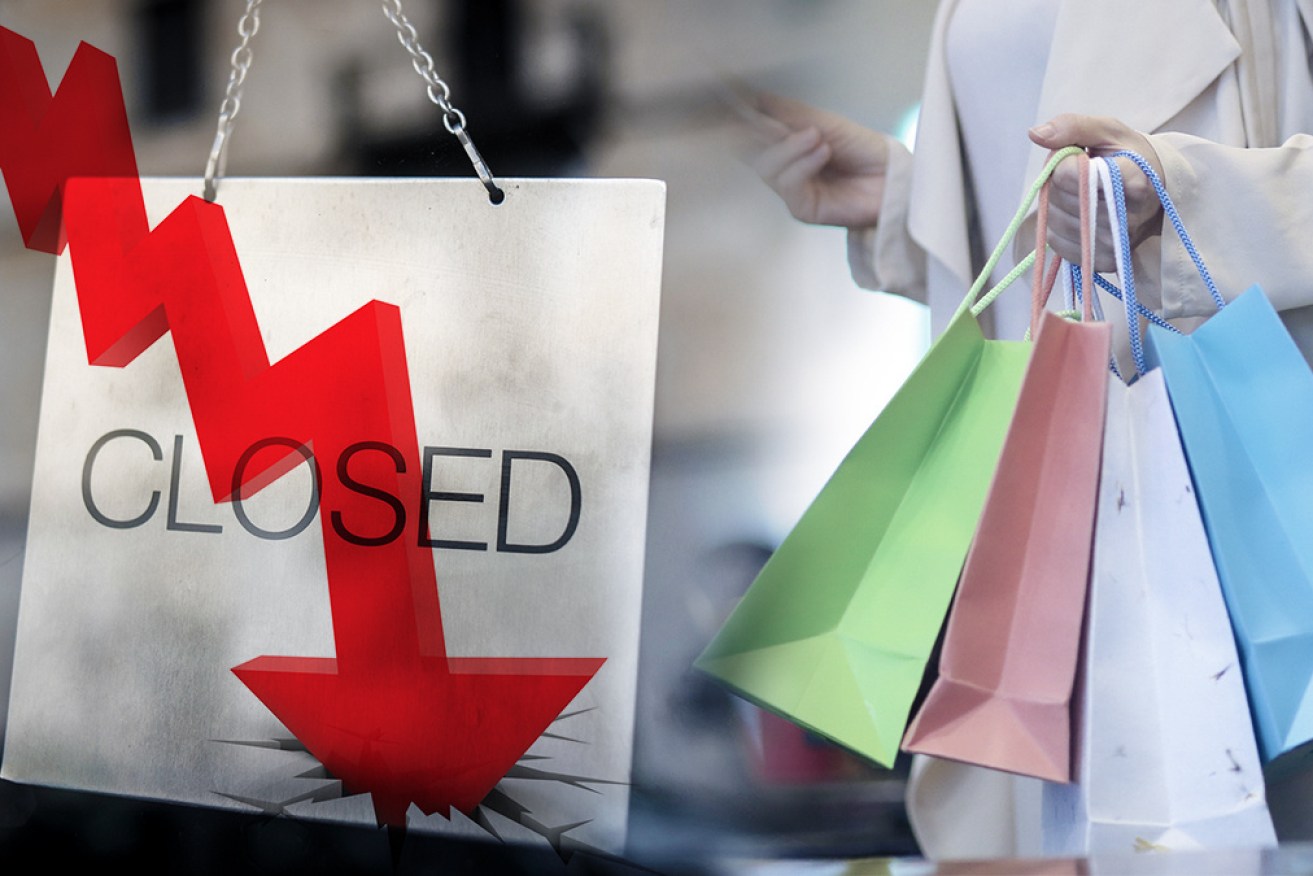No end – and little hope – in sight for retailing’s massive bloodbath


Australian retailers are falling victim to sluggish consumer spending and stronger competition. Photo: TND
Almost 200 retail stores are set to close over the coming months, as tough market conditions and increased online competition continue to take their toll.
Weak wages growth and record high debt levels are forcing Australians to cut back on spending.
And traditional retailers are struggling to keep up with the times.
Harris Scarfe was the first major retailer to announce a significant number of closures this year – flagging last Monday that it would cut 440 jobs and close 21 stores as part of the receivership process announced before Christmas.
And in the days since, McWilliam’s, Bardot, EB Games, Jeanswest, and Bose have all gone the same way.

Analysts say McWilliam’s failed to remodel itself as a premium brand. Photo: Getty
Sound and speaker specialist Bose was the last to go, announcing on Thursday that the “dramatic shift to online shopping” would see it close eight stores in Australia and a total of 119 globally.
And analysts say the retail bloodbath is far from over.
Billy Sung, senior marketing lecturer at Curtin Business School, said weak economic conditions were partly to blame for the spate of recent closures.
Economic growth last year dropped to its slowest pace since the global financial crisis, after heavily indebted Australians adjusted their spending to the ‘new normal’ of weak wages growth.
But Dr Sung said retailers must shoulder some of the blame, too, with many failing to give consumers a reason to shop at their stores.
The rise of online shopping has increased competition to such an extent that loyalty can no longer be bought with price, he said.
Consumers can easily find cheaper alternatives online, so bricks-and-mortar retailers must find new ways of winning over customers.
“For instance, if I’m looking for a pair of jeans, I can easily compare the price of that pair, not only with the domestic market, but also with the overseas market,” Dr Sung said.
“And if a number of competitors have no unique selling proposition, no point of differentiation, what you will see is the average consumer will just go for the lowest price.”
Dr Sung said Jeanswest had failed to convince consumers their jeans were better than cheaper alternatives.
“However, if you look at luxury brands, one of the unique selling propositions is not only the high quality, but the brand name, the model that wears them, the endorser who endorses the brand,” he said.
R.M Williams is a good example, he said. The Australian retailer has successfully marketed itself as a premium brand selling Australian-made products.
“Obviously, Jeanswest is a very longstanding brand, so they wouldn’t be able to just elevate to [become a] luxury brand,” Dr Sung said.
“But what they have failed to do is give customers a reason to buy from Jeanswest.”
I'm genuinely struggling to keep up this week @carey_alexis
Risky strategy to move to pure-play model when you're selling $600 headphones and $4000 speakers when you can't hear the products.#bose #retail https://t.co/cKfQQkJUP8
— Professor Gary Mortimer 🛒🛒🛒 (@ProfRetail) January 16, 2020
Retail Doctor Group chief executive Brian Walker offered a similar take, telling The New Daily that Jeanswest failed to accommodate new consumer trends.
“The world is changing, and these large, legacy networks of stores have frankly never changed their look or their image, apart from some cosmetics,” he said.
“Where was the product innovation? Where was the investment in omni-channel play?
“They had a good loyalty programme, I understand that, but price can’t be the only differentiator – there has to be more.”
The biggest store closures in the last 12 months
- Bardot – The women’s fashion retailer announced on January 9 that it would shut 58 stores and make 530 workers redundant. CEO Basil Artemides blamed “an increasingly discount-driven market”.
- Curious Planet – The science store formerly known as Australian Geographic announced on January 13 that it would close all 63 of its stores, after a two-month sales campaign failed to lure a buyer.
- Criniti’s – The Italian restaurant chain told employees in November 2019 that it had entered voluntary administration, with several of its 13 sites on the chopping board.
- Dimmeys – November 2019 also saw the demise of discount retailer Dimmeys, after 166 years of trading.
- Ed Harry – The menswear retailer went out of business in January 2019, closing all 87 outlets.
- EB Games – The video game retailer announced last week that it would shut 19 stores before February.
- Harris Scarfe – The iconic retailer went into receivership before Christmas and has since announced 21 store closures and 440 redundancies.
- Karen Millen – British-based fashion retailer Karen Millen shut all seven of its stand-alone retail stores in September. Roughly 80 people lost their jobs.
- McWilliam’s Wines – One of the country’s oldest wine families went into administration last week, after more than 143 years of trading. Documents filed to the corporate regulator showed the company made a $5.4 million loss in 2018, mainly thanks to high sales and marketing costs.
- Muscle Coach – The health and fitness company went into voluntary administration after racking up debts of almost $1 million. The business has since been sold.
- Napoleon Perdis – Loss of market share to Jo Horgan’s Mecca Cosmetica and LVMH’s Sephora saw the cosmetics brand go into voluntary administration at the beginning of 2019.








